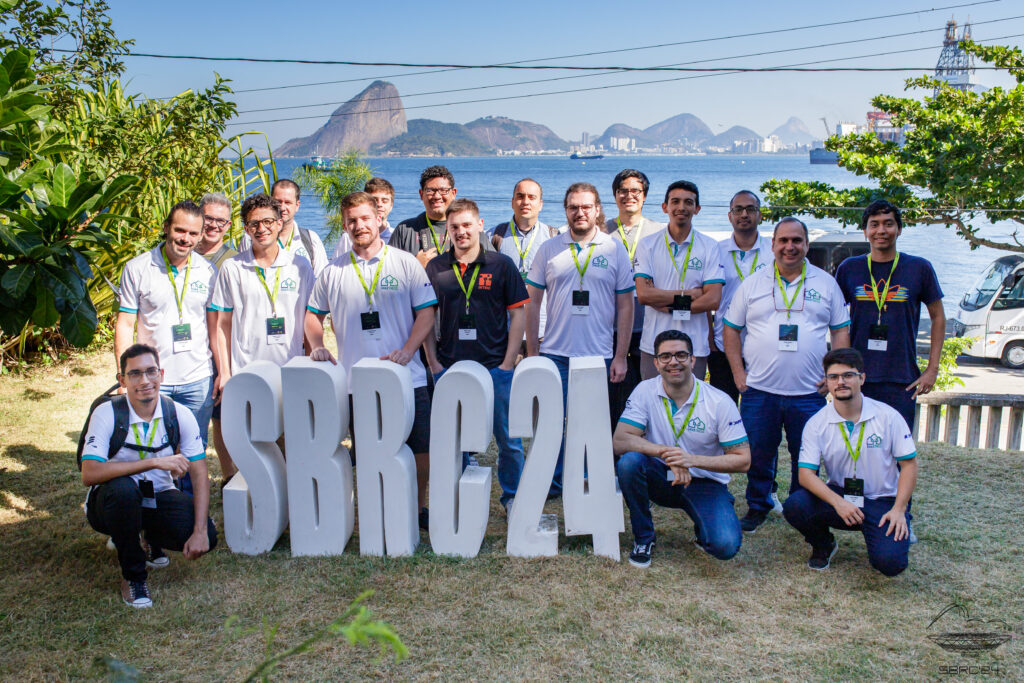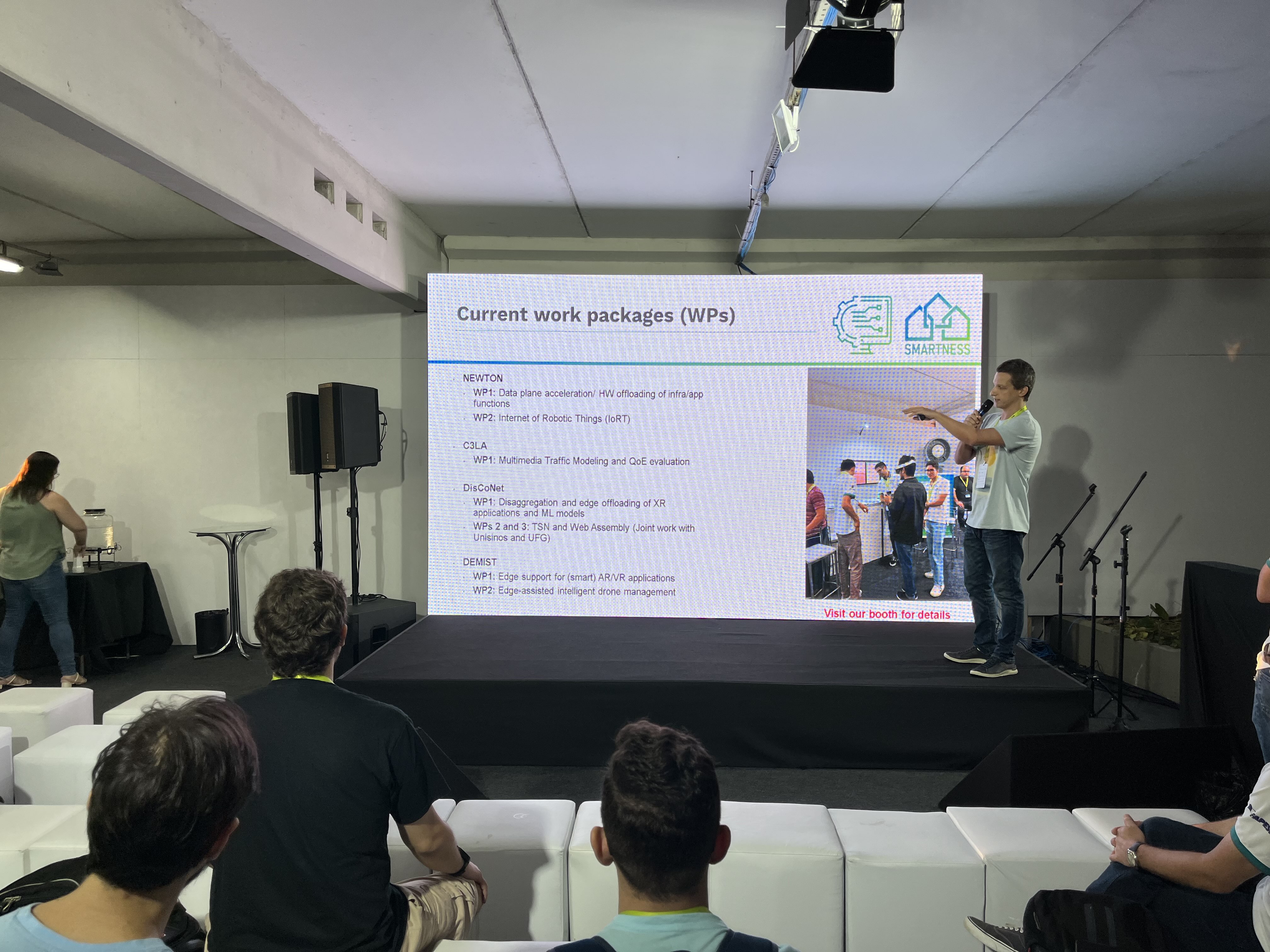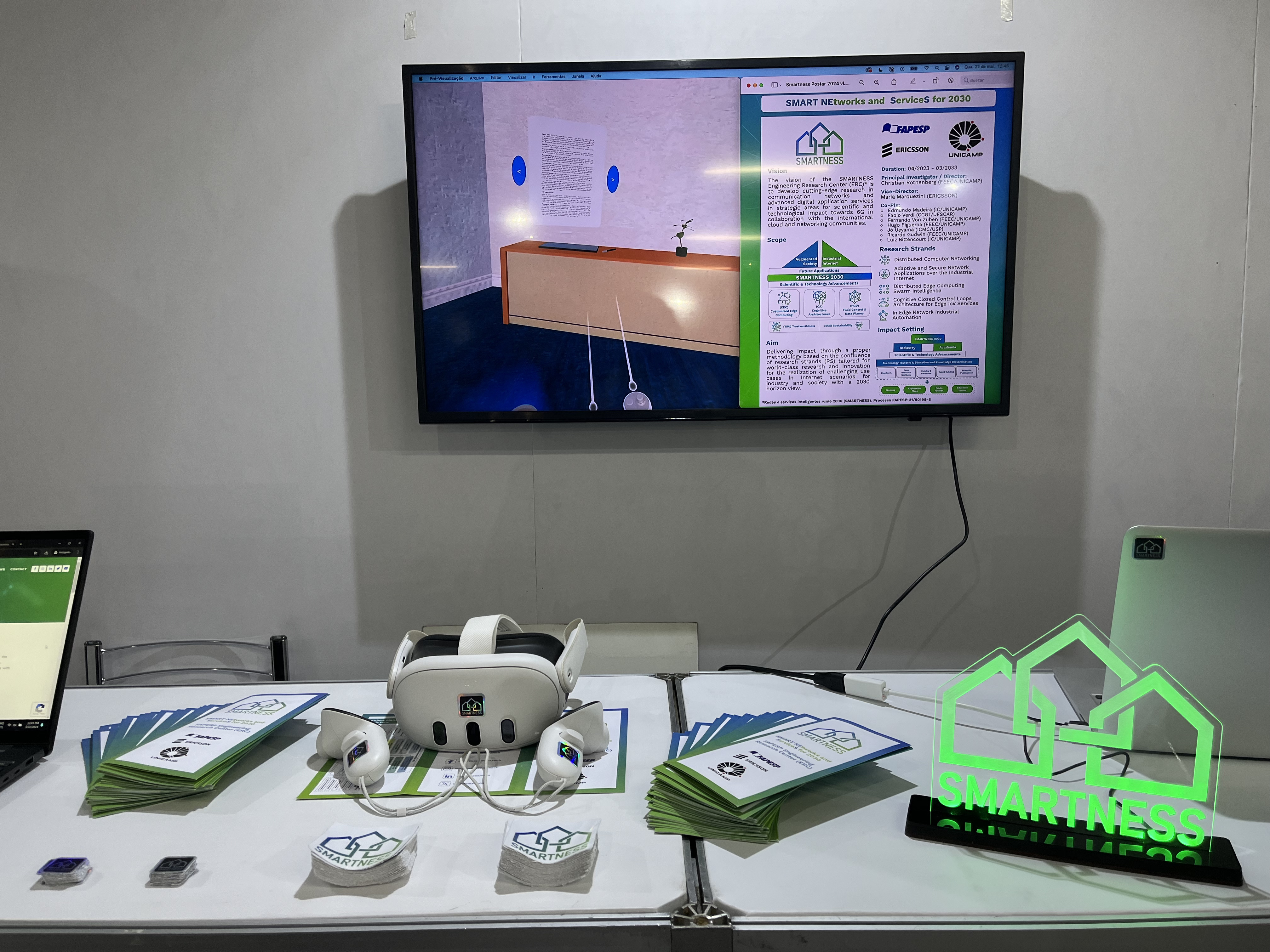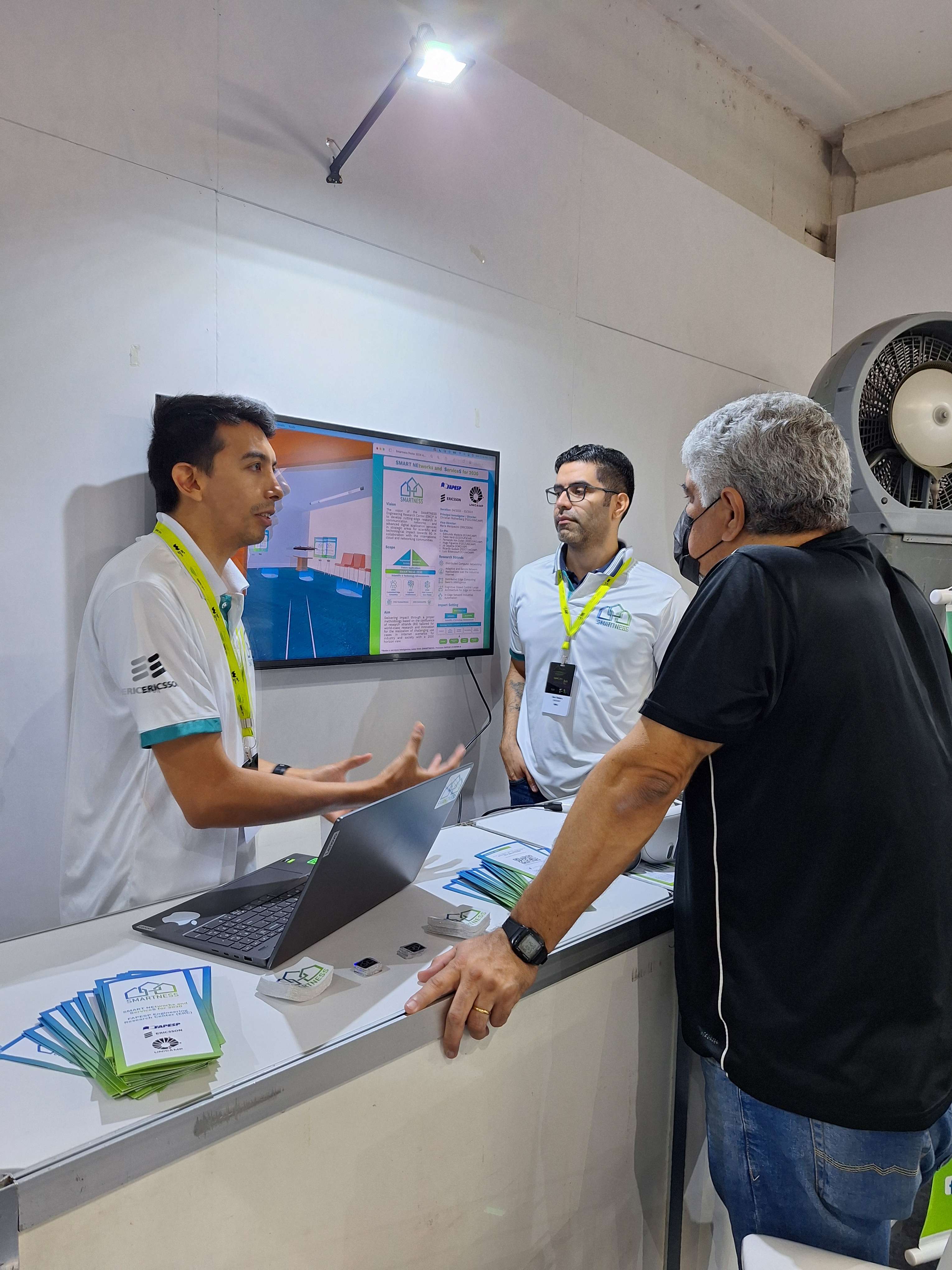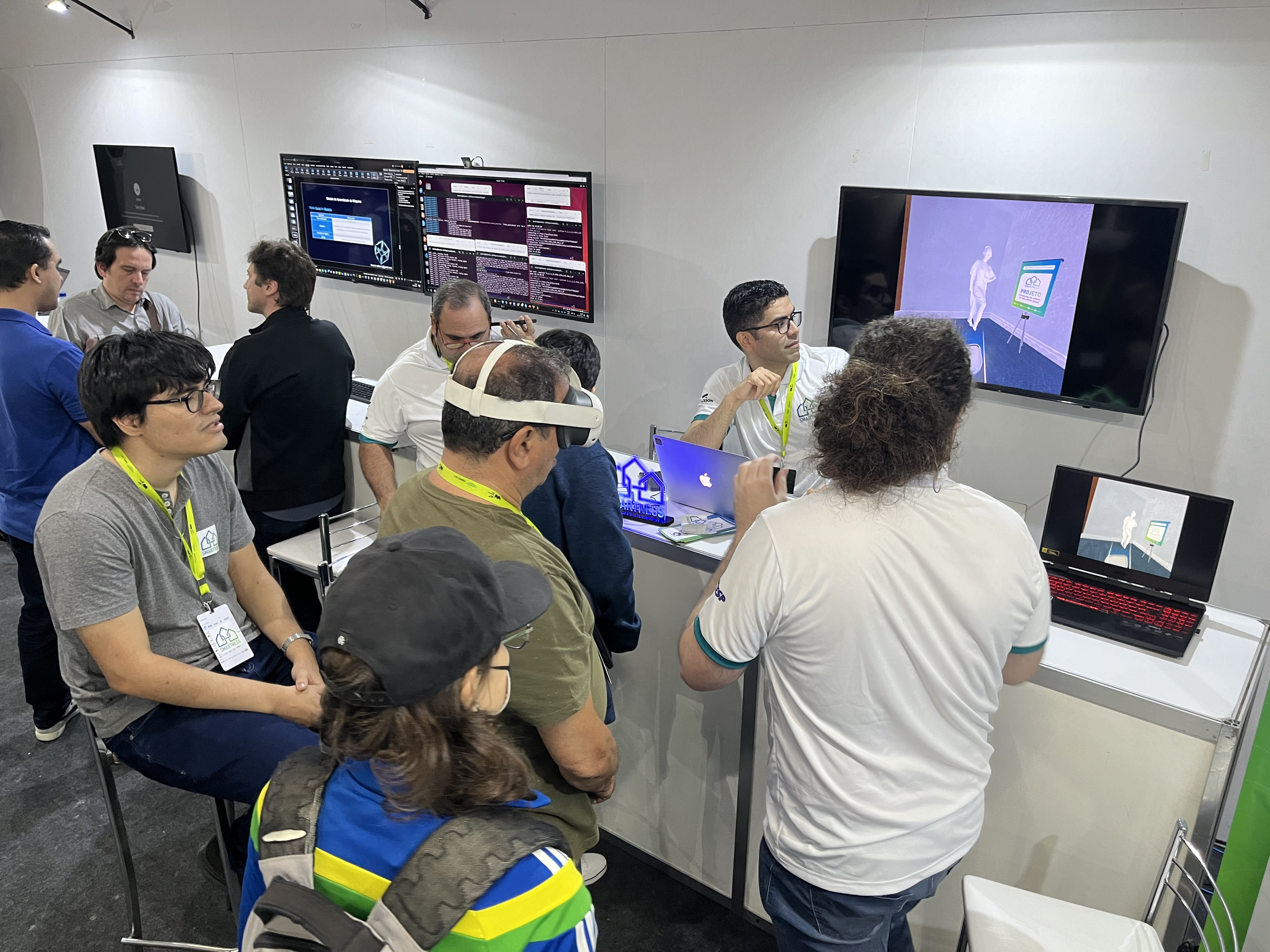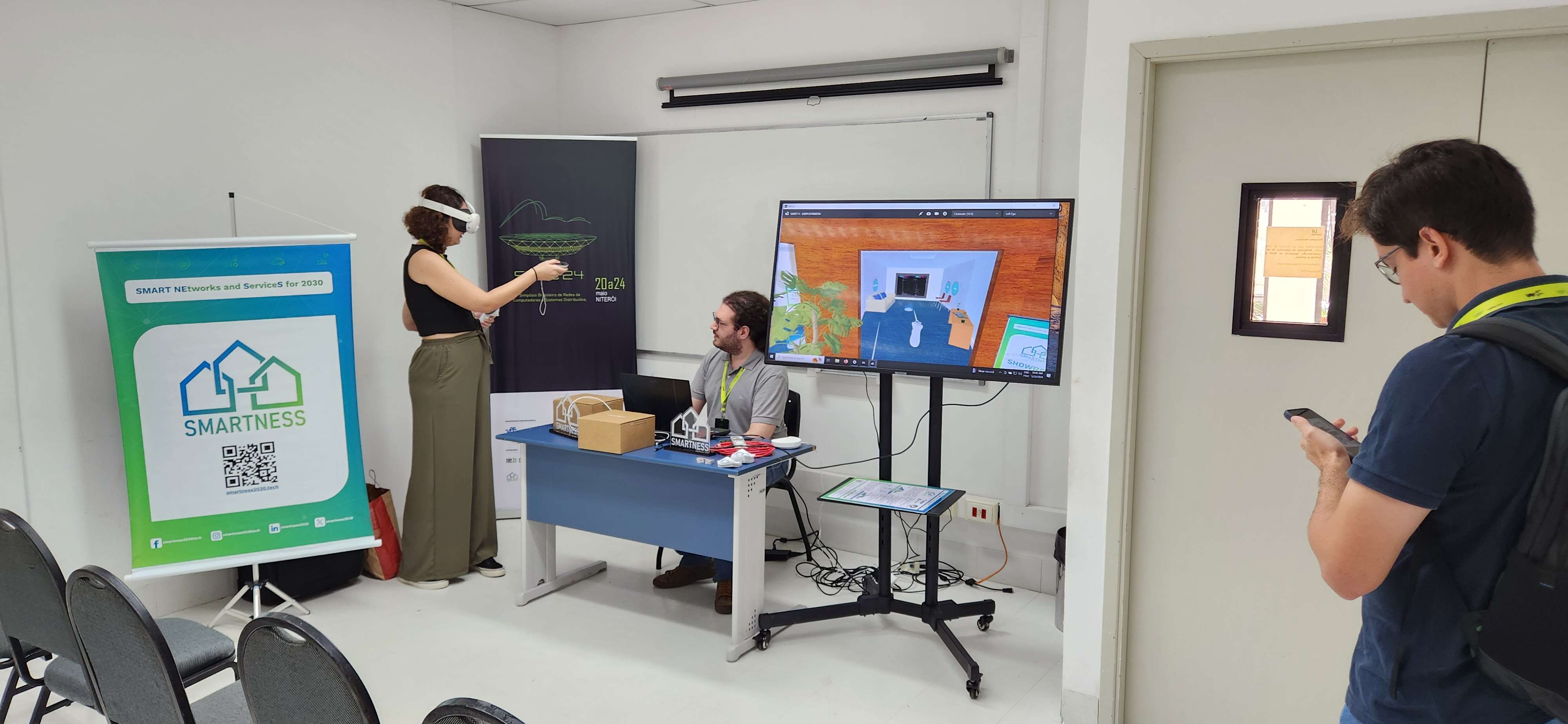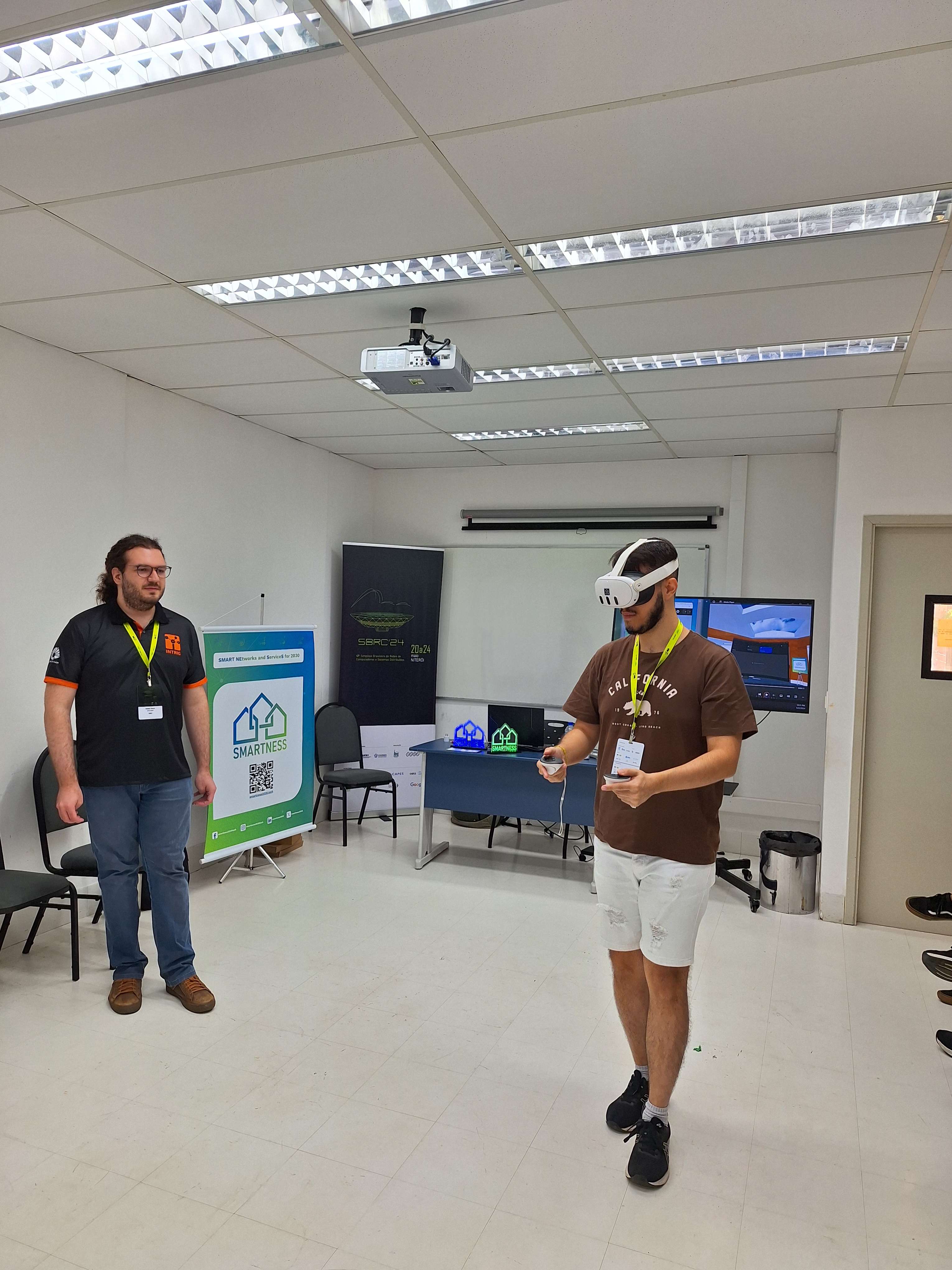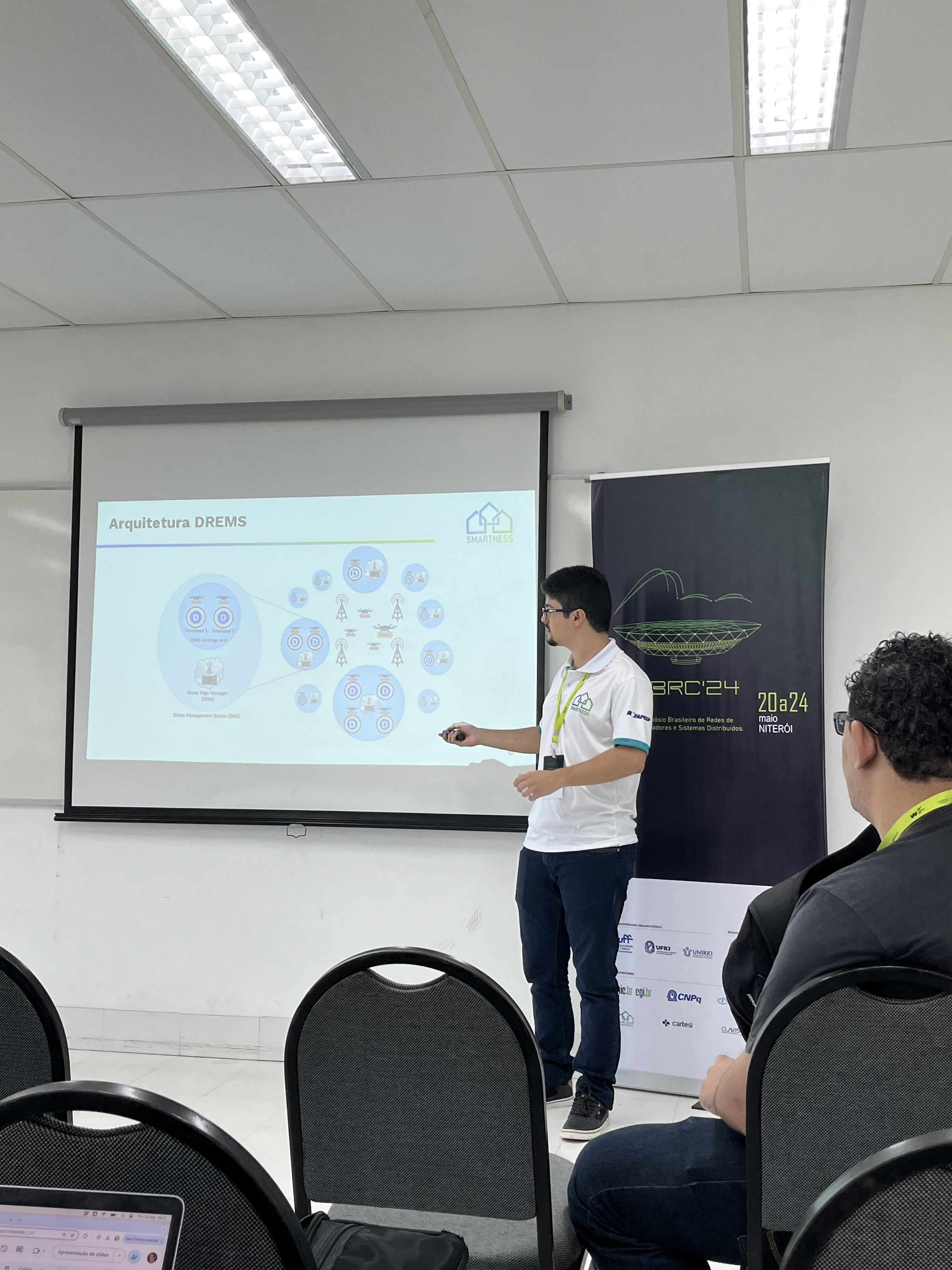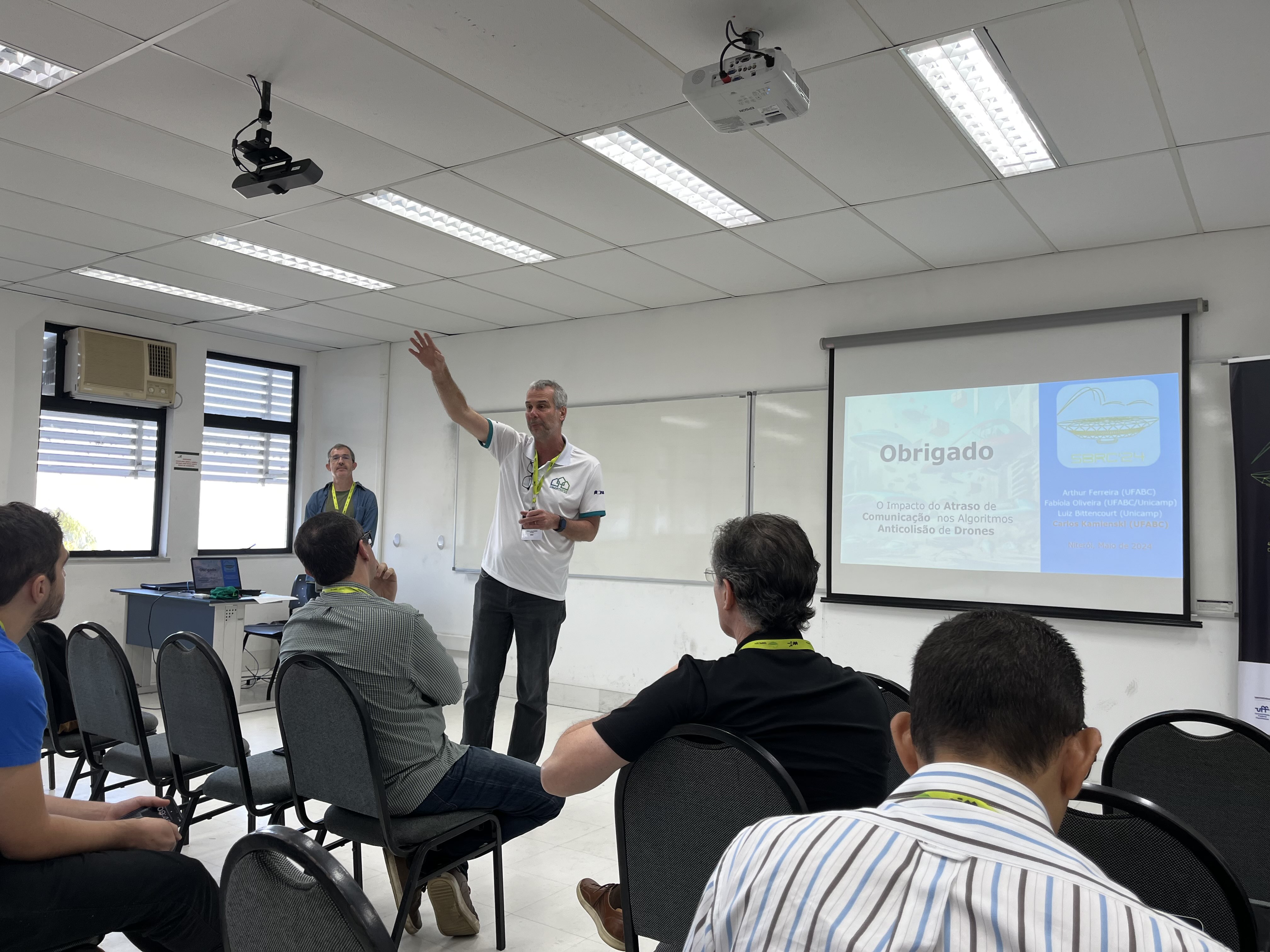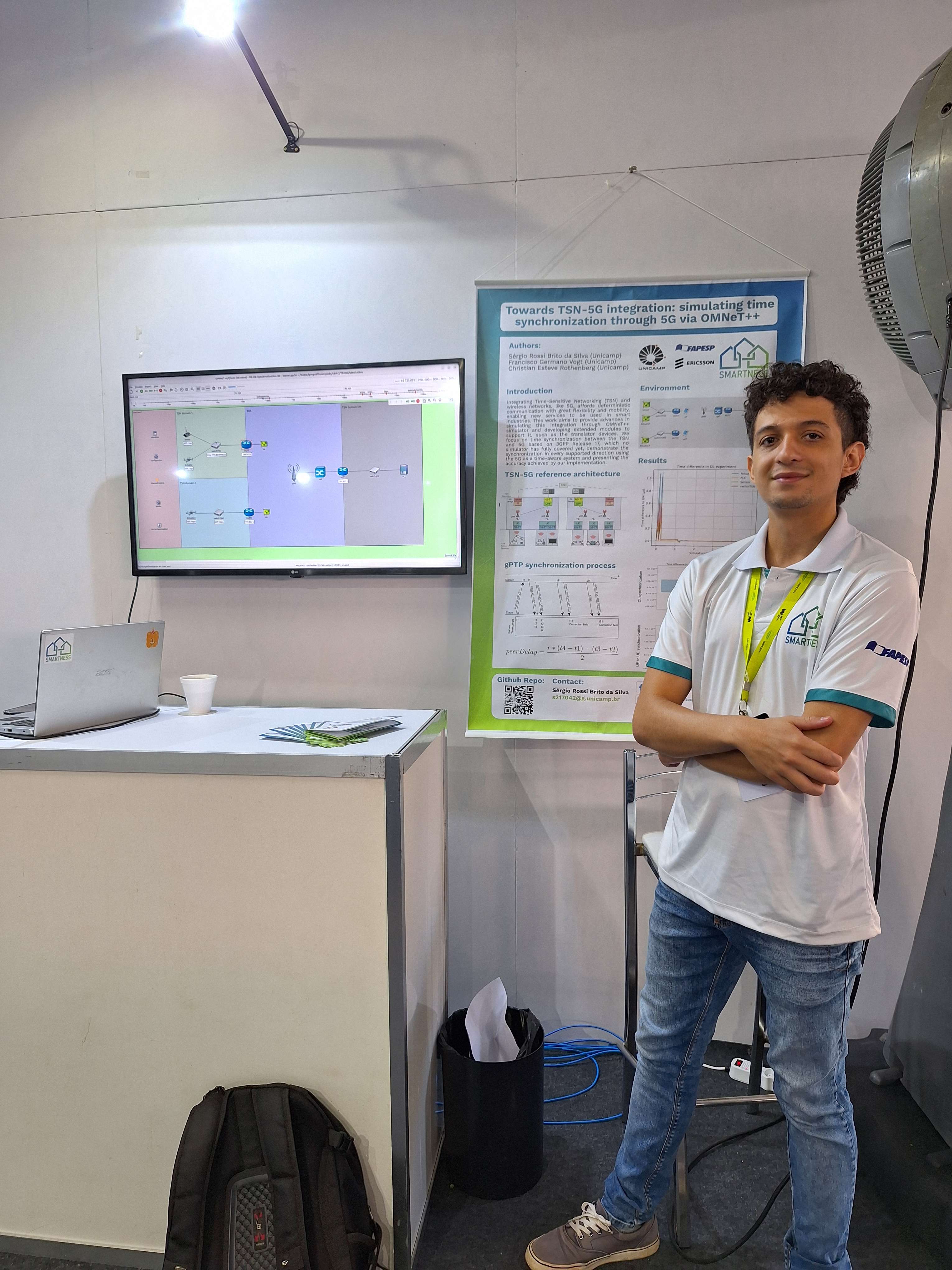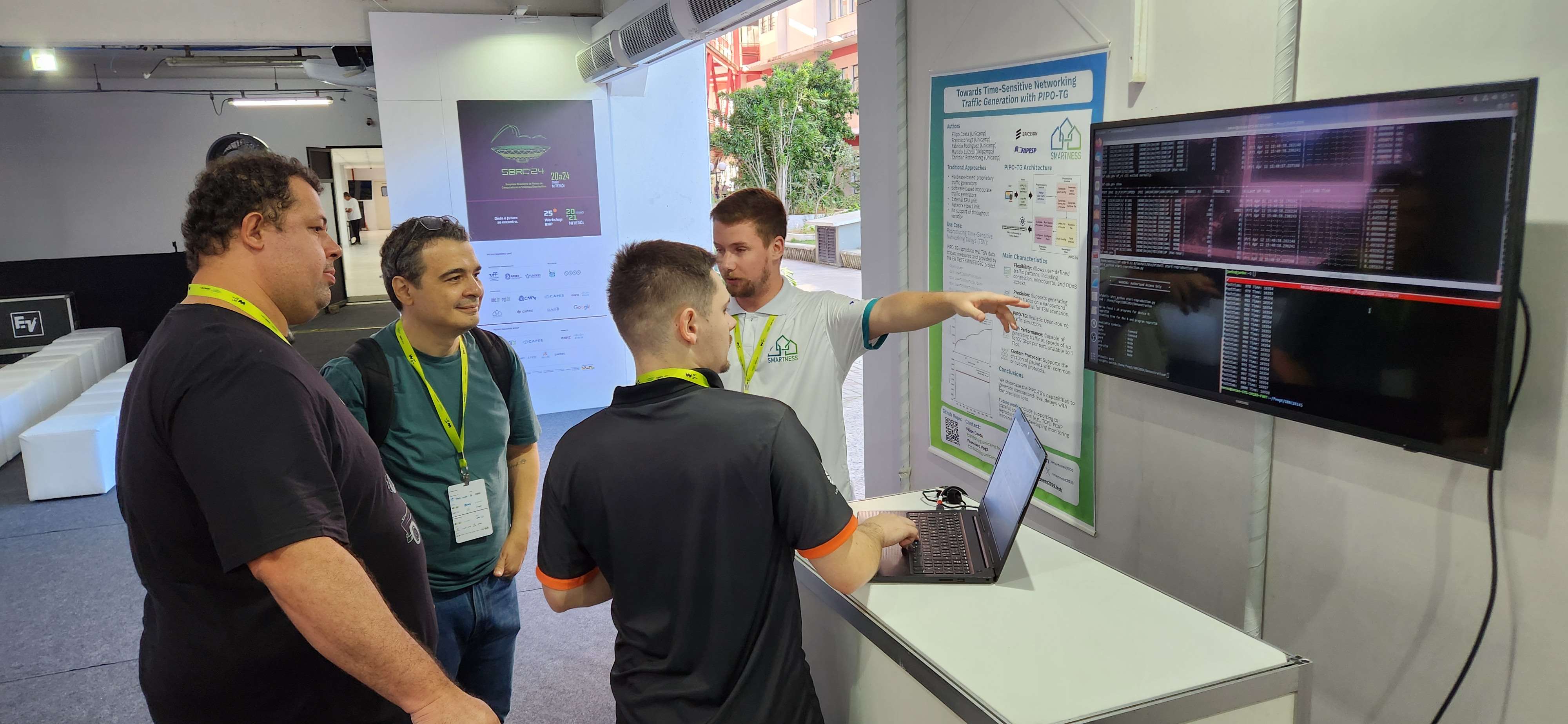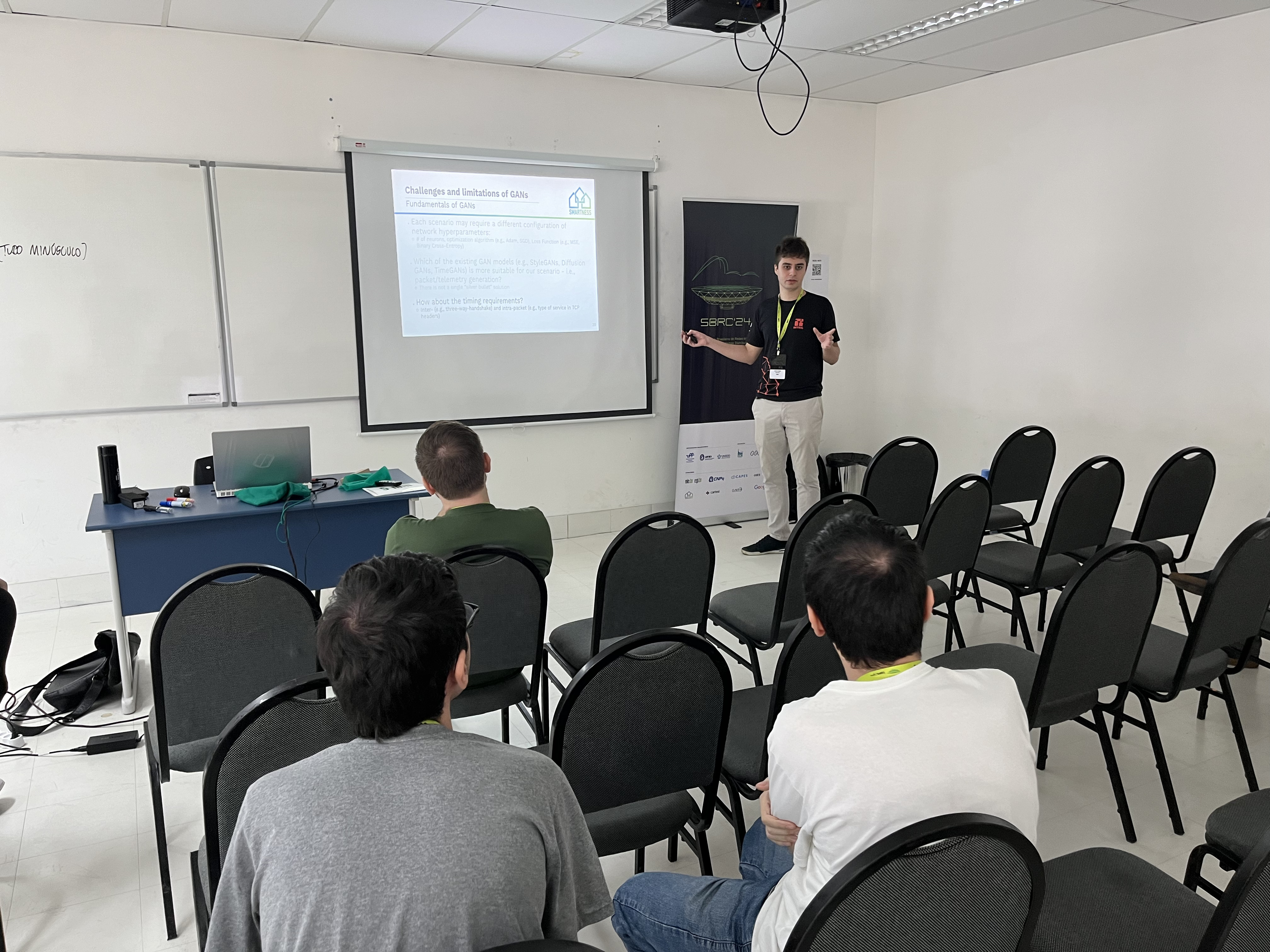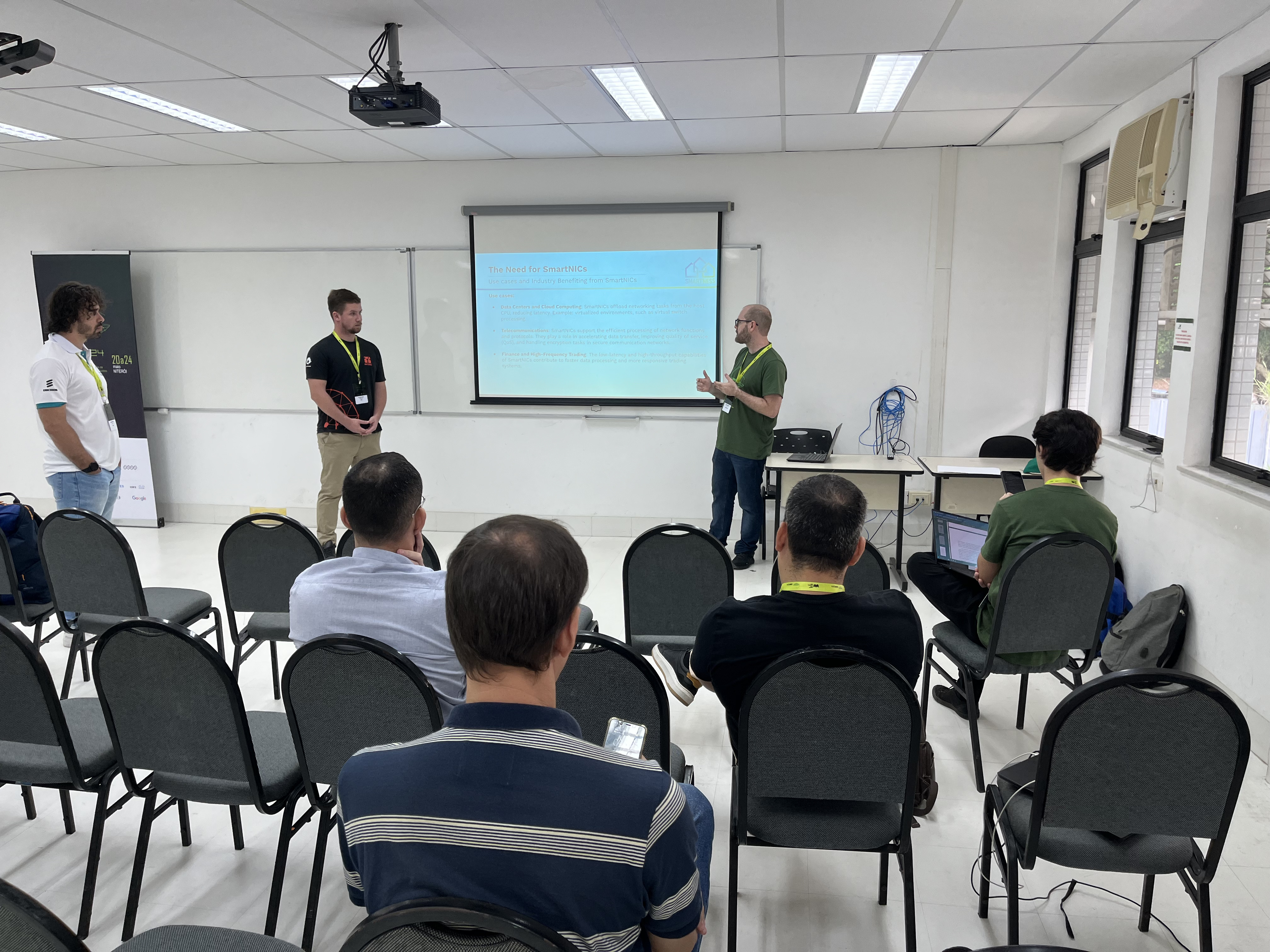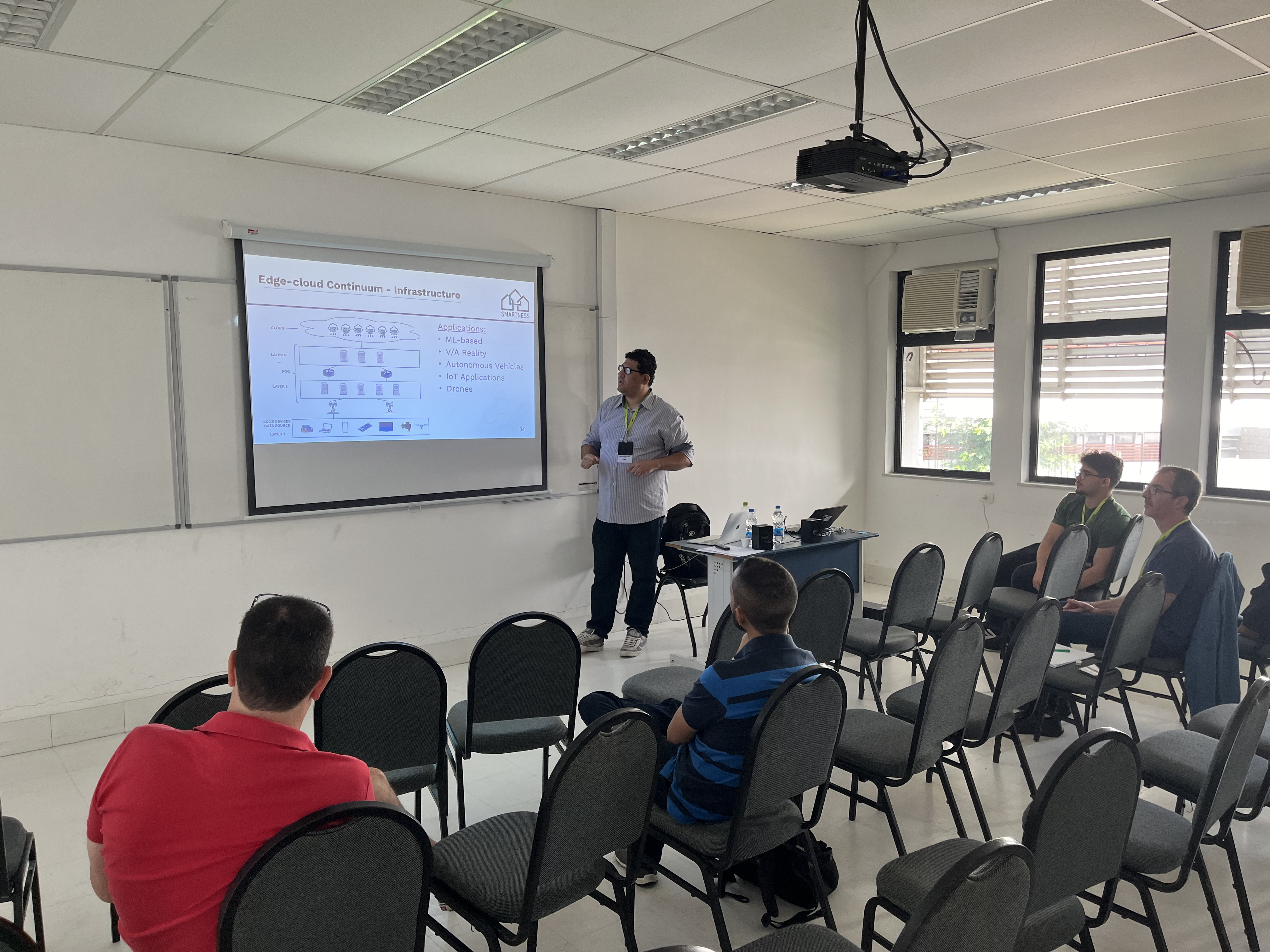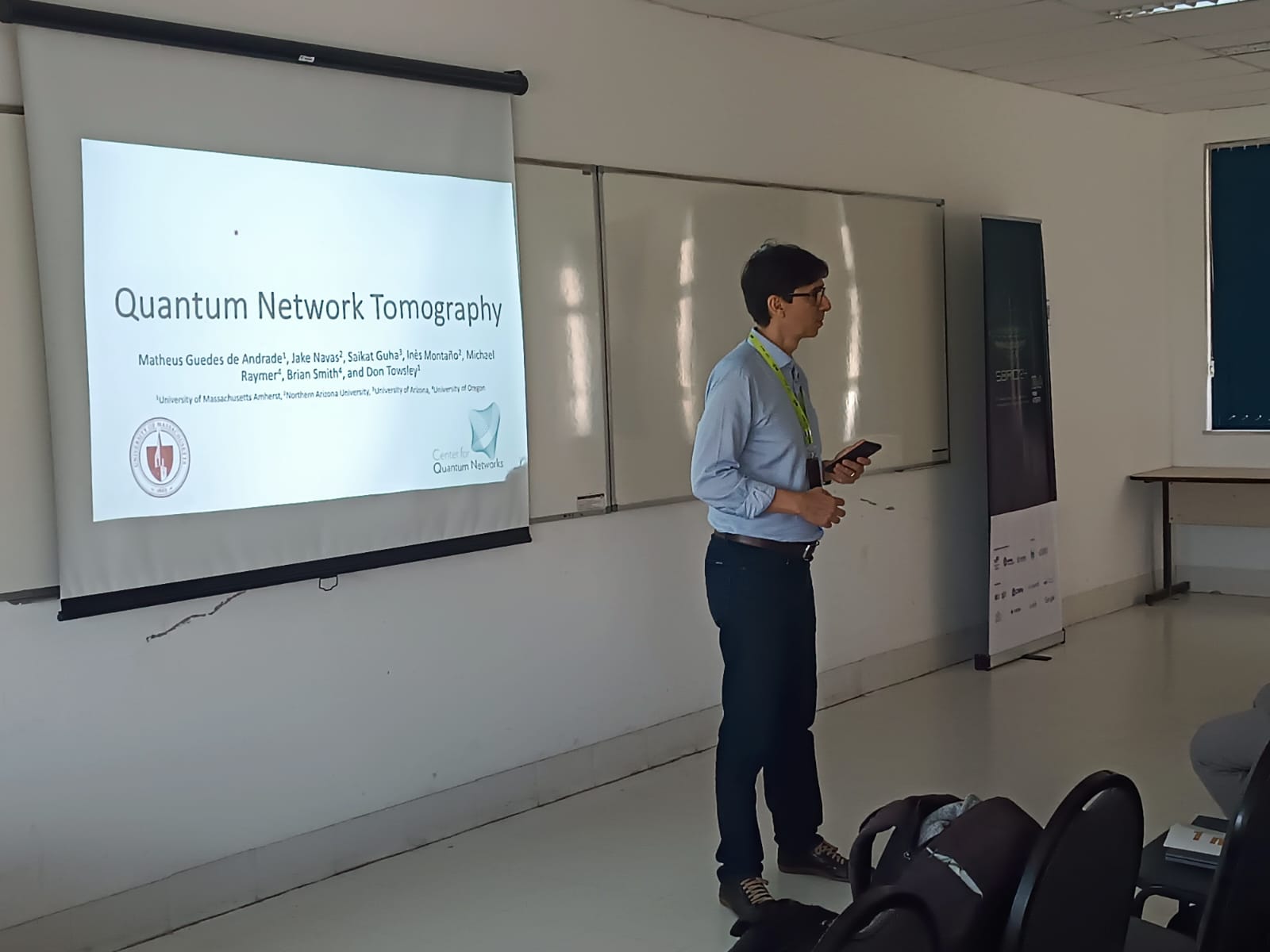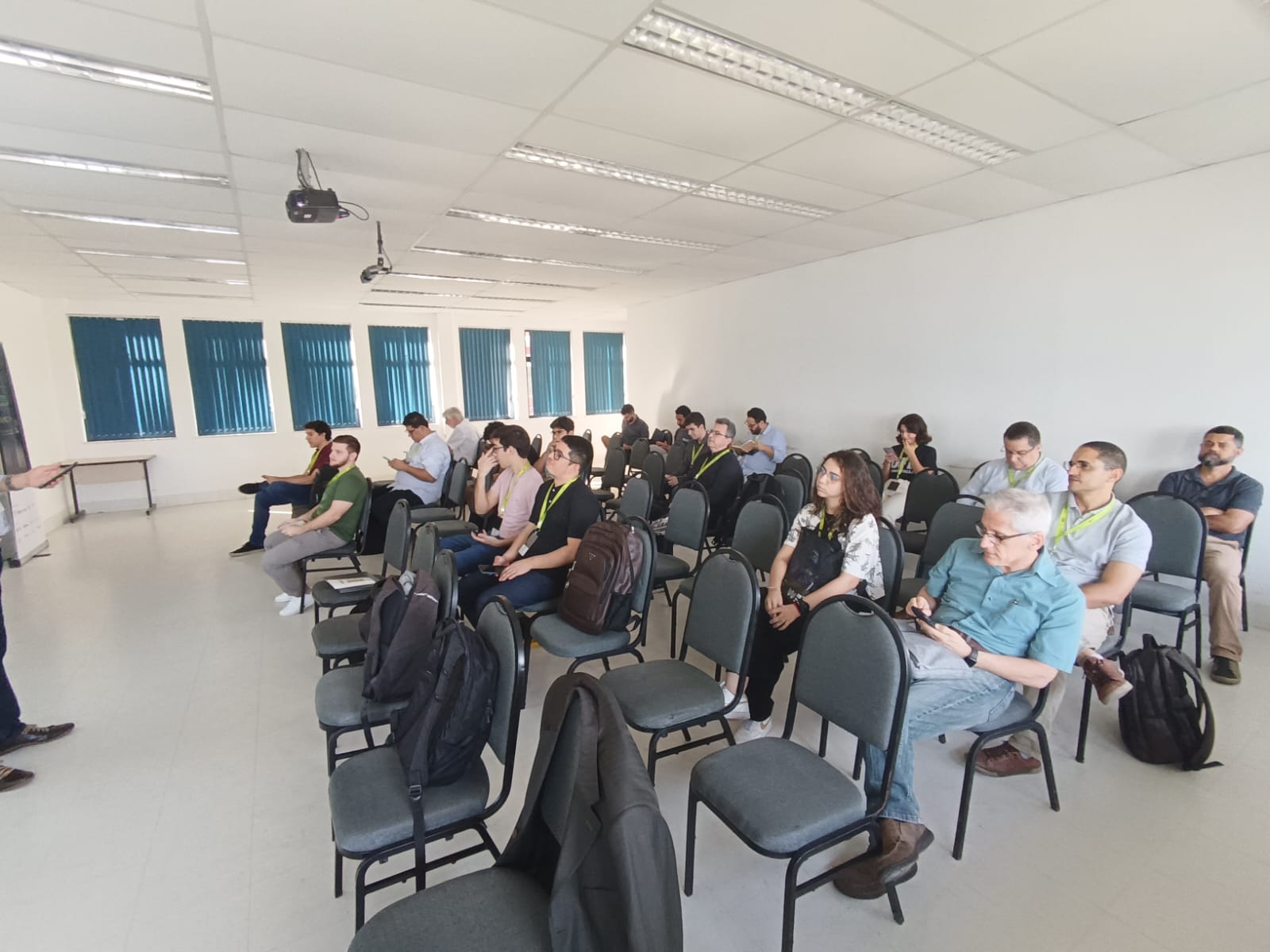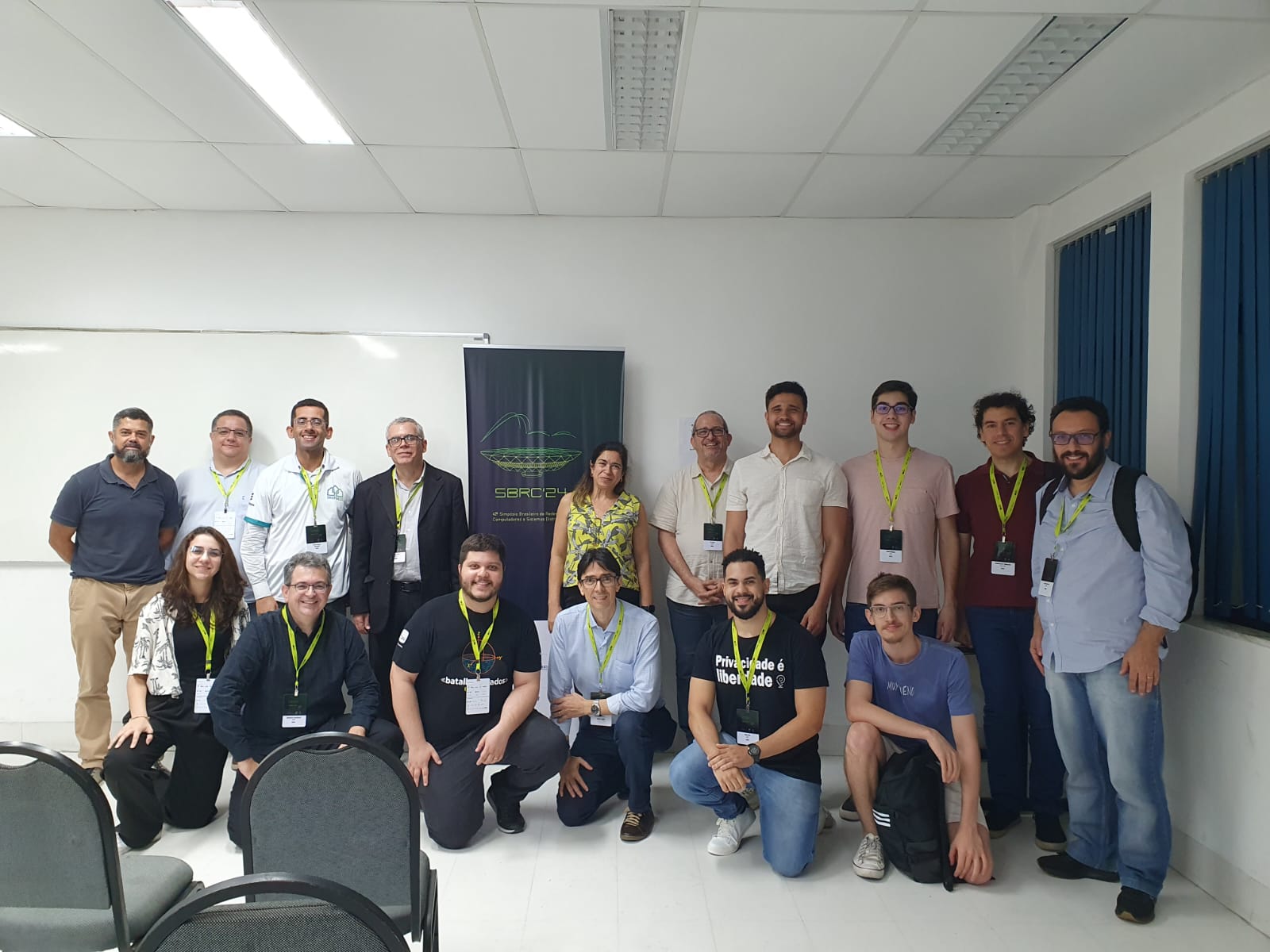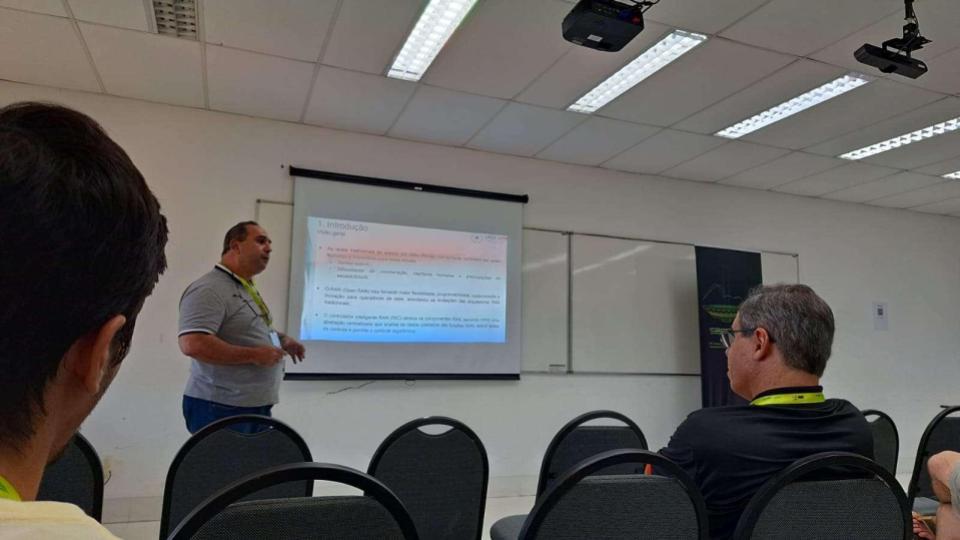SMARTNESS was present at the 42nd Simpósio Brasileiro de Redes de Computadores e Sistemas Distribuídos (SBRC), 2024 edition held at Federal Fluminense University (UFF), Niterói, Brazil. The SBRC symposium is an annual event held by the Brazilian Computing Society (SBC) and the Computer Networks Laboratory (LARC). Over the course of more than four decades, the SBRC has established itself as the most important national scientific event in computer networks and distributed systems, reaching international scope with the presence of researchers, technicians, and scientists from Latin America and other parts of the world.
The SMARTNESS participation in the SBRC was carried out by professors and graduate students from different Work Packages (WPs) and universities, such as Universidade Estadual de Campinas
(UNICAMP), Universidade Federal de São Carlos (Ufscar), Universidade de São Paulo (USP), and Universidade Federal do Pará (UFPA). A total of 3 papers, 3 demos, and 3 mini-courses were presented, in addition to the organization of the I Workshop de Redes Quânticas (WQuNets).
Prof. Fabio Verdi presenting the SMARTNESS project during the coffee break
Prof. Luiz Bittencourt presenting the SMARTNESS project during the coffee break
SMARTNESS PRESENTATION
Throughout the week, SMARTNESS had the opportunity to explain its vision as a research center, its research strands, and the articles/demos/short-courses presented at the SBRC, among other things. For this, it developed a Showroom in the Meta Quest 3 + Unity, in which attendees could participate in an immersive Virtual Reality experience to learn more about the SMARTNESS project.
Meta Quest 3 to present the showroom of SMARTNESS
Researchers Mauricio Rodriguez and Alan Teixeira presenting the SMARTNESS project at the SBRC auditorium
SBRC attendees checking out the Showroom
Researcher Rafael Clerici presenting the SMARTNESS project in a room at the SBRC
SBRC attendees checking out the Showroom
PAPERS
Three papers were presented in this edition of the SBRC. Researchers Diego Medeiros de Abreu, Christian Esteve Rothenberg, and Antônio Jorge Gomes Abelém, presented the paper entitled “qIDS: Sistema de Detecção de Ataques baseado em Aprendizado de Máquina Quântico Híbrido”. Researchers Lucas de Paula Soares, Fabíola M. C. de Oliveira, Carlos A. Kamienski, and Luiz F. Bittencourt, presented the paper entitled “Computação na Borda para Drones: Gerenciando Pousos e Decolagens em Centros de Distribuição”. Also, researchers Arthur A. Ferreira, Fabíola M. C. de Oliveira, Luiz F. Bittencourt, and Carlos A. Kamienski, presented the paper entitled “O Impacto do Atraso de Comunicação nos Algoritmos Anticolisão de Drones”.
Researcher Lucas de Paula Soares presenting the paper “Computação na Borda para Drones: Gerenciando Pousos e Decolagens em Centros de Distribuição”
Researcher Carlos A. Kamienski presenting the paper “O Impacto do Atraso de Comunicação nos Algoritmos Anticolisão de Drones”
DEMOS
Three demos were presented in this edition of the SBRC. Researchers Sergio Rossi da SIlva, Francisco Vogt, Christian Esteve Rothenberg, presented the work entitled “Towards TSN-5G integration: simulating time synchronization through 5G via OMNeT++”. Researchers Filipo Gabert Costa, Francisco Vogt, Fabricio Eduardo Rodriguez Cesen, Marcelo Caggiani Luizelli, Christian Esteve Rothenberg, presented the work entitled “Towards Time-Sensitive Networking Traffic Generation with PIPO-TG”. Also, researchers Thiago D. Ferreira, Otavio Felipe de Freitas, Renan C. A. Alves, Bruno C. Albertini, Marcos A. Simplicio Jr., Daniel M. Batista, presented the work entitled “SPDM-WiD: Uma Ferramenta para Inspeção de Pacotes do Security Protocol Data Model (SPDM)”.
Researcher Sergio Rossi da SIlva presenting the paper “Towards TSN-5G integration: simulating time synchronization through 5G via OMNeT++”
Researchers Francisco Vogt and Filipo Gabert Costa presenting the paper “Towards Time-Sensitive Networking Traffic Generation with PIPO-TG”
SHORT COURSES
Three short courses were presented in this edition of the SBRC. Researchers Thiago Caproni Tavares, Leandro C. de Almeida, Washington Rodrigo Dias da Silva, Ariel Góes de Castro, Christian Esteve Rothenberg, and Fábio Luciano Verdi, presented the course entitled “Generation of Synthetic Datasets in the Context of Computer Networks using Generative Adversarial Networks”. Researchers Marcelo Caggiani Luizelli, Francisco Vogt, Guilherme Mendes Vieira de Matos, Weverton Cordeiro, Alberto Egon Schaeffer-Filho, Marcos Schwarz, Fábio Luciano Verdi, and Christian Esteve Rothenberg, presented the course entitled “SmartNICs: The Next Leap in Networking”. Also, researchers Roberto Rodrigues-Filho, Eduardo S. Gama, Marcio Roberto Miranda Assis, Roger Immich, Edmundo Madeira, and Luiz Fernando Bittencourt, presented the course entitled “Content Steering: Leveraging the Computing Continuum to Support Adaptive Video Streaming”.
Researcher Ariel Góes de Castro presenting the short course “Generation of Synthetic Datasets in the Context of Computer Networks using Generative Adversarial Networks”
Researchers presenting the short course “SmartNICs: The Next Leap in Networking”
Researcher Roberto Rodrigues-Filho presenting the short course “Content Steering: Leveraging the Computing Continuum to Support Adaptive Video Streaming”
WORKSHOP
The SMARTNESS researchers Christian Rothenberg and David Moura, in conjunction with the researchers Antônio Abelém and Diego Abreu, had the opportunity to organize the I Workshop de Redes Quânticas (WQuNets). First, the Opening keynote was conducted by researchers Matheus Andrade e Donald Towsley (UMass-Amherst) with the topic Quantum Network Tomography. Then, the “ST1 – Experimentação, Simulação e Modelagem de Redes Quânticas” was introduced in coordination with Diego Abreu. After the coffee break, the “ST2 – Algoritmos e Protocolos Quânticos aplicados em Redes de Computadores” was held in coordination with David Moura. Finally, the following panelists participated: Paulo Nussenzveig (USP) – Centro Brasileiro de Tecnologias de Informação Quântica (BRAQIT), Alexandre Baron Tacla (Senai/Cimatec) – Centro de Competência Embrapii Cimatec em Tecnologias Quânticas (Quiin), and Ulisses Rosa (MCTIC) – Coordenação de Fomento à Inovação – COFIN/MCTIC.
Prof. Antônio Abelém presenting the opening keynote “Quantum Network Tomography”
Participants of the WQuNets
Researchers who were part of the WQuNets
Finally, the students from Smart and Sustainable Cities Laboratory (LACIS) at the Federal University of Pará (UFPA) who are involved in the SMARTNESS C3LA – Holographic Type Communication (HTC) Work Packet, presented the work entitled “Enhancing the Handover Algorithm with an Intelligent Approach in an O-RAN Architecture” in the “Workshop de Gerência e Operação de Redes e Serviços”.
Researcher Kleber Vilhena presenting the work “Enhancing the Handover Algorithm with an Intelligent Approach in an O-RAN Architecture”


